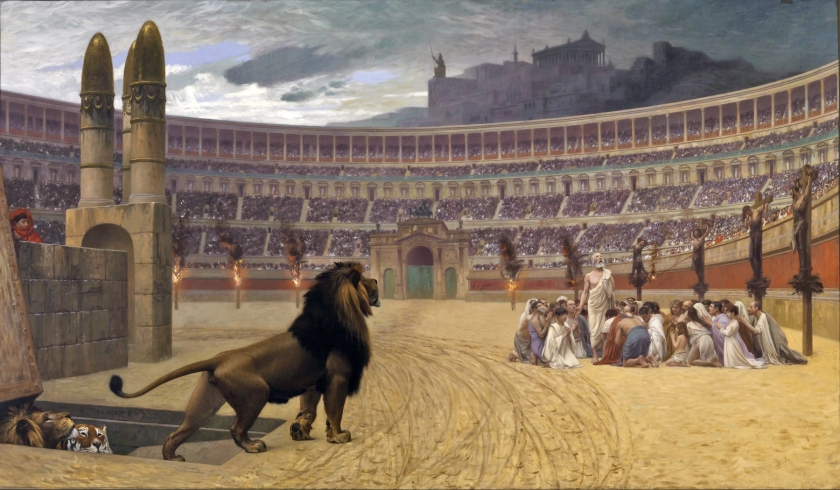
James 3:8-9 – But the tongue can no man tame; it is an unruly evil, full of deadly poison. Therewith bless we God, even the Father; and therewith curse we men, which are made after the similitude of God.
I don’t really have a good, artistic opening for a blog post here, so let’s cut to the chase:
Hey, Old Paths Baptists and New Independent Baptists, I consider you brothers in Christ. Fellow-laborers for the same cause. I am personal friends with some of you and I respect many more. So please understand the spirit in which I say this:
Shut up.
I do not mean don’t preach, don’t communicate, don’t talk on the internet. I am talking about, specifically, taking pot-shots at each other on social media. Twitter, Facebook, what have you. Stop it.
Now, there are certain people that I suspect won’t take this advice. Fine; maybe they never come across this, or maybe that’s just how they are. But there are a number of people who consider themselves to be reasonable, who desire to be spirit-filled, who would be considered disciples of Christ that I hope would pay attention.
This is not an issue on only one side or another. It runs pretty equally between both. Yeah, there were some guys criticizing Idea Day earlier this week. My friend Ryan Hayden just posted a blog describing “Old Paths Rage,” but he declined to give examples. I can say that I did see a few people take shots at Idea Day (though I would hardly call it “rage”); I saw even more people gripe about people taking shots at Idea Day. The criticism wasn’t mythical, but it wasn’t universal either.
And it wasn’t surprising. After all, Idea Day is heavily, heavily promoted on social media. It’s a part of its signature. And, because it has been developed and propagated by Josh Teis, It is closely associated with the “New Independent Baptist” concept that he has led whether all of the Idea Day participants identify with it or not. The leaders of it can claim “no politics” all they want, but you can’t look at something developed and led by New Independent Baptists and not associate it with that any more than you can look at the list of preachers at the National Sword of the Lord Conference and not identify what philosophy they promote. So the “usual suspects” were always going to say something about it.
Here’s the thing: The snark coming from the New Independents is just as bad as the snark coming from the Old Paths guys. This is hard for me to write, because some of the offenders are guys I consider friends. The man who runs the @TheIdeaDay twitter account (and serves under Josh Teis) has a personal account littered with insults directed at “old fashioned” Baptists. A speaker at Idea Day has tweeted within the last week suggesting, perhaps inadvertently, that Pastors who have evangelists in for revival meetings with some reliance on them influencing their church should resign. And then, this week, tweeted that criticism and judgmentalism are killing the body of Christ.
Meanwhile, old paths preachers scan the social media of rival pastors, pick out a picture of some Christian School kids on a senior trip, and comment on the attire of the girls to critique their pastor. Others critique compromise in music but attend Southern Gospel Concerts in Methodist churches.
It goes both ways. Smugness. Arrogance. There are hundreds of examples we could indulge in. People using snark as virtue-signaling and as flag-waving, rallying their own troops closer together while lumping the “other” into a group and laughing.
It is extremely off-putting and no side is in any way superior to the other.
It has to stop.
Two reasons why:
1. We Have a Wide Audience.
When you criticize certain ideas or philosophies that differ from you on social media, your readership does not have any context. Perhaps a New Independent is just letting off steam after getting personally mistreated by a caustic Old Paths guy, but the tweet reads as an attack on all people of the philosophy. People like Greg and Carol, faithful laypeople at the church in Michigan I came from. Kind people who love God and have served for decades. I am hurt by this. Many are.
Or an Old Paths guy tweets snark about youth group behavior because they’re genuinely excited that they have teens that are growing in the Lord. But it reads as an attack on a kid who got saved in my ministry on a bus route, a kid with no father in the home and an alcoholic parent who couldn’t tell you the books of the Bible and hasn’t yet developed a lot of visible godliness but begs me to get a ride to church to hear preaching and grow. I am hurt by this. Many are.
You are nuking other Christians from orbit. And there are a bunch of guys like me, who aren’t in a “camp,” who want to be encouraged, to fellowship, and to learn on social media and instead we have to take cover as we get flamed from both sides. And this says nothing of the people who aren’t saved, watching our testimonies.
2. It Is Not Biblical Behavior
This entire snarky dialogue proceeds from a flawed application of biblical separation. The Bible has specific commands about when and how to separate. Two pertinent highlights:
II Thessalonians 3:6 – Now we command you, brethren, in the name of our Lord Jesus Christ, that ye withdraw yourselves from every brother that walketh disorderly, and not after the tradition which he received of us.
Romans 16:17 – Now I beseech you, brethren, mark them which cause divisions and offences contrary to the doctrine which ye have learned; and avoid them.
The key words: “withdraw,” “mark,” and “avoid.” If you believe you need to separate fellowship with someone, you mark them (identifying within your own church), avoid them, and withdraw.
You are not to engage, insult, and criticize.
If you cannot fellowship with someone, stop trying to interact with them on social media—withdraw. If you can’t read something frustrating without responding, don’t dig into their feeds to find something offensive—avoid. Don’t invite them to preach at your church, don’t encourage your people to see them, and if necessary (due to their influence) warn your own people about their errors—mark. Taking shots at them is not the right answer.
Now it is possible that you don’t think separation is warranted. That’s great. Perhaps you have a softer view of separation. Maybe you don’t like them but you don’t consider them to be in a doctrinal position that you need to separate from (I should point out here that while I disagree in non-trivial ways with both Josh Teis and Bob Gray Sr. they have both in their own ways attempted to be fair and inclusive to those they disagree with, and that’s admirable). They are on the same team, but they are doing or acting in a way that you believe is wrong. Good news! There’s a Bible command for dealing with that, too.
II Thessalonians 3:15 – Yet count him not as an enemy, but admonish him as a brother.
I see stuff I disagree with on social media a lot. Some of it may come from people I am not in fellowship with. I try not to respond. Some of it may come from people who just won’t respond or learn from admonishment; there’s no point in talking to them, either.
I have, however, occasionally pushed back when I’ve seen someone I know and respect say something I disagree with. I feel like “the bad guy” when I tweet back, and maybe I am, but I am trying to talk in a brotherly way. Frankly, those guys, the ones I know and have some kind of a relationship with, are the only ones that I can properly talk to as a brother. I don’t know whether I’ve gotten it right, but it’s worth a try.
If you can admonish someone as a brother, go ahead and do it.
Subtweet pot-shot insults are not brotherly. They aren’t Christlike at all. But they are the primary, visible form of interaction between Old Paths and New Independents.
It is unseemly and uncharitable. It is unbiblical and unchristian. And it burns a lot of innocent bystanders.
Stop doing it. Please.

